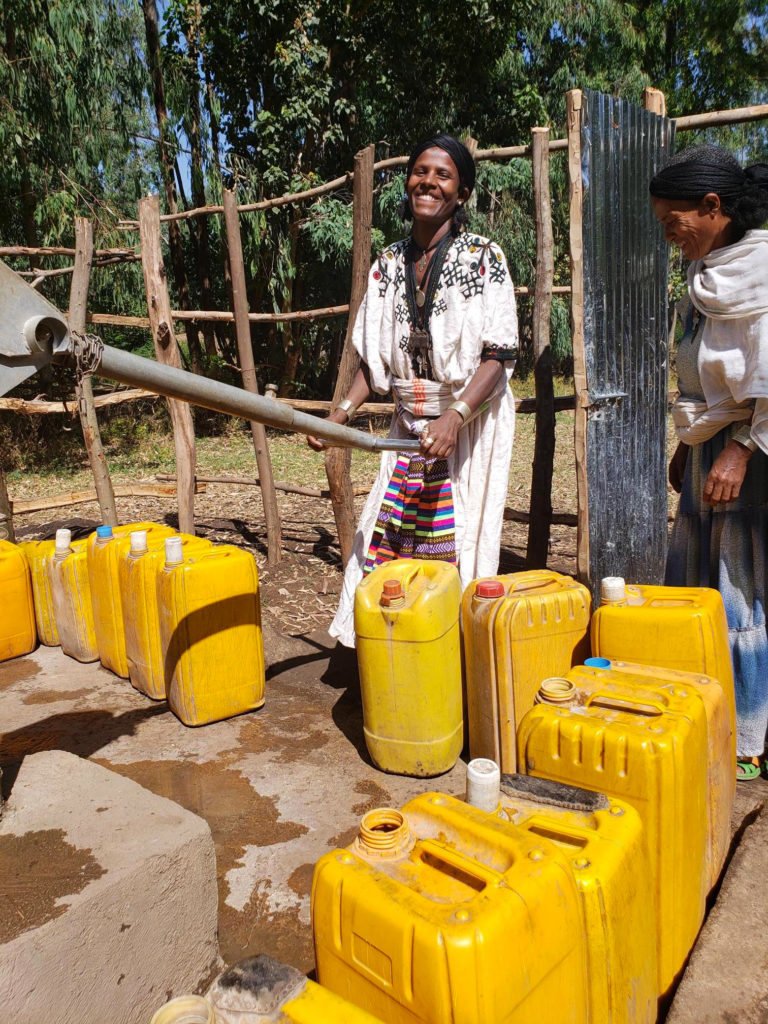
We made it to Gondar in the northwest of Ethiopia. Our partner is the Ethiopia Orthodox Church Development and Inter-Church Aid Commission (EOC-DiCAC). Water to Thrive works through several partners in Ethiopia. Our partners are registered NGOs and have experience in water project implementation and other development programs. Specifically, EOC DICAC assists vunerable communities through tackling the root causes of poverty, drought, conflict, gender inequality, and the HIV/AIDS pandemic.
Our partners work with local governmental agencies/water departments in identifying the villages in most need. They also assist in training, especially WASH (water, sanitation, and hygiene) and in maintaining the water points.
Today, we visited six water points implemented with EOC-DICAC. We are celebrating with the communities, but also checking the quality of the construction. Our goal is creating sustainable projects. The construction must be based on our best practices with good drainage of run-off, a fence, door and lock, and operating hours. At each of the projects we visited today, the pumps were located on large platforms built off the ground in case of flooding. They also included stands to place the jerry cans.
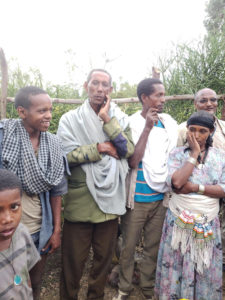
All of the project sites had water committees who oversee the supervision and management of the well. At each of the villages, the majority of the committees were comprised of women. We suggest at least 50 percent of the committee be female as the women are in charge of gathering water and will be certain to maintain it as it directly impacts their lives.
At the villages, coffee was served as a sign of hospitality. I don’t think I’ve ever drank so much coffee in one day. The coffee beans are pounded fresh on the spot, poured in the jabena and cooked over an simmering coals. The pitcher is held high above the tiny cups and poured expertly to the brim. Sugar is then passed around to sweeten the thick, dark liquid.
In addition to coffee, we are encouraged to share roasted chickpeas, corn, and other grains. At one of the villages, as we were walking to our vehicles, men from the village came running with platters of injera (traditional bread) and shiro.
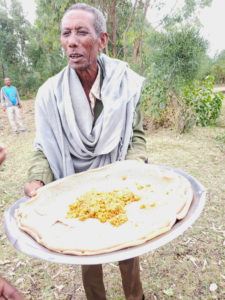
The words of gratitude and blessings bestowed on us were genuine and heartfelt. They all share similar stories of walking many hours to unprotected sources of water that make them sick. Some of the villages dig their own wells, but they are open, unprotected, and often run dry. We witness one woman dropping a jerry can into such a well and then pulling it up with a rope. The people share that rats, snakes, and other animals are found in those types of wells.
At midday, we took a break and stopped at a little restaurant on the side of the road. Wednesdays and Fridays are fasting days for the Ethiopian Ortodox Christians, so we were served platter after platter of injera, shiro, and vegetables. I’ve never seen so much food or that amount of food disappear so quickly. They eat communally and use their right hands to tear off a piece of the injera and use it like a spoon or scoop to pick up the other items. Of course, all of the foods are either seasoned with berbere or served with a side of berbere (a topic for another blogpost).
Our long day ended at a local favorite restaurant called Four Sisters. We were seated outside and provided ponchos to keep us warm. We enjoyed the buffet along with the local honey wine called tej.
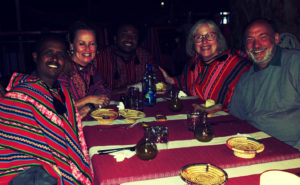
As I reflect upon the day, I’m taken back to the words of one of the beneficiaires. He said that every morning he wakes and praises God and asks God to bless the organization and people who brought water to his village because his life has changed. He is the very embodiment of our motto: Build Wells. Change Lives.

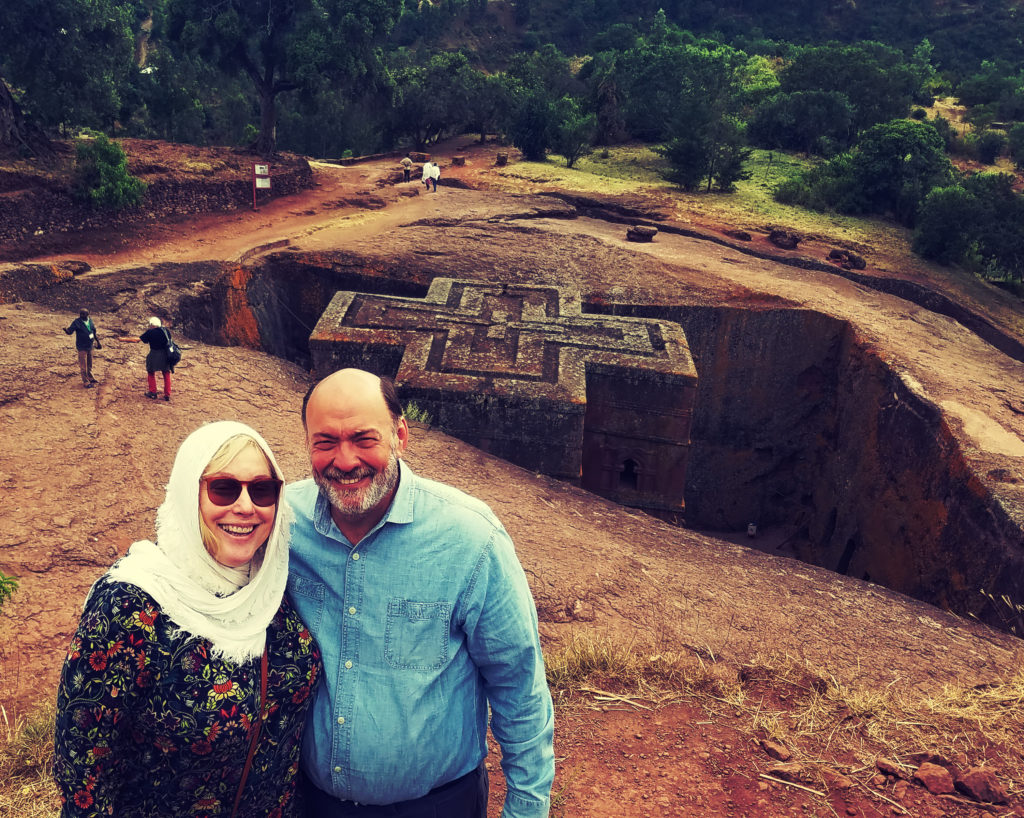
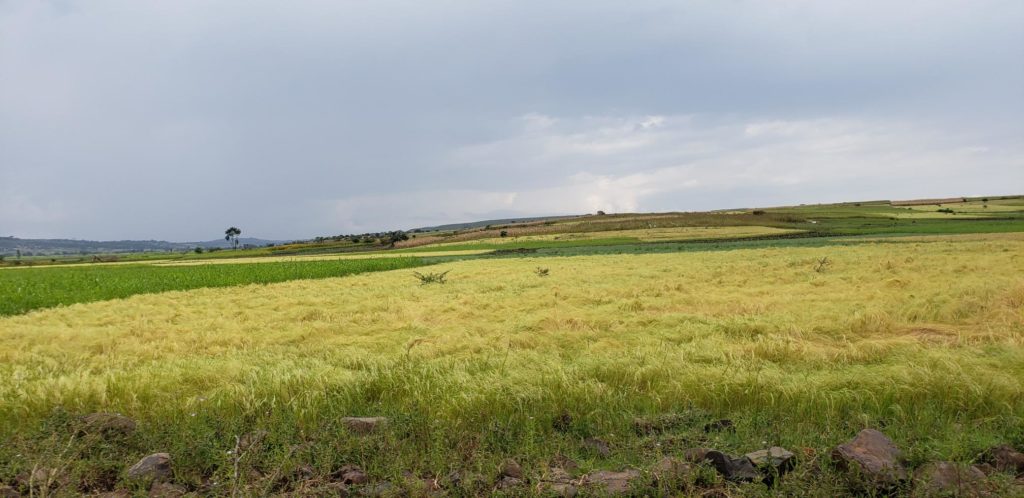
About The Author: Water to Thrive
More posts by Water to Thrive